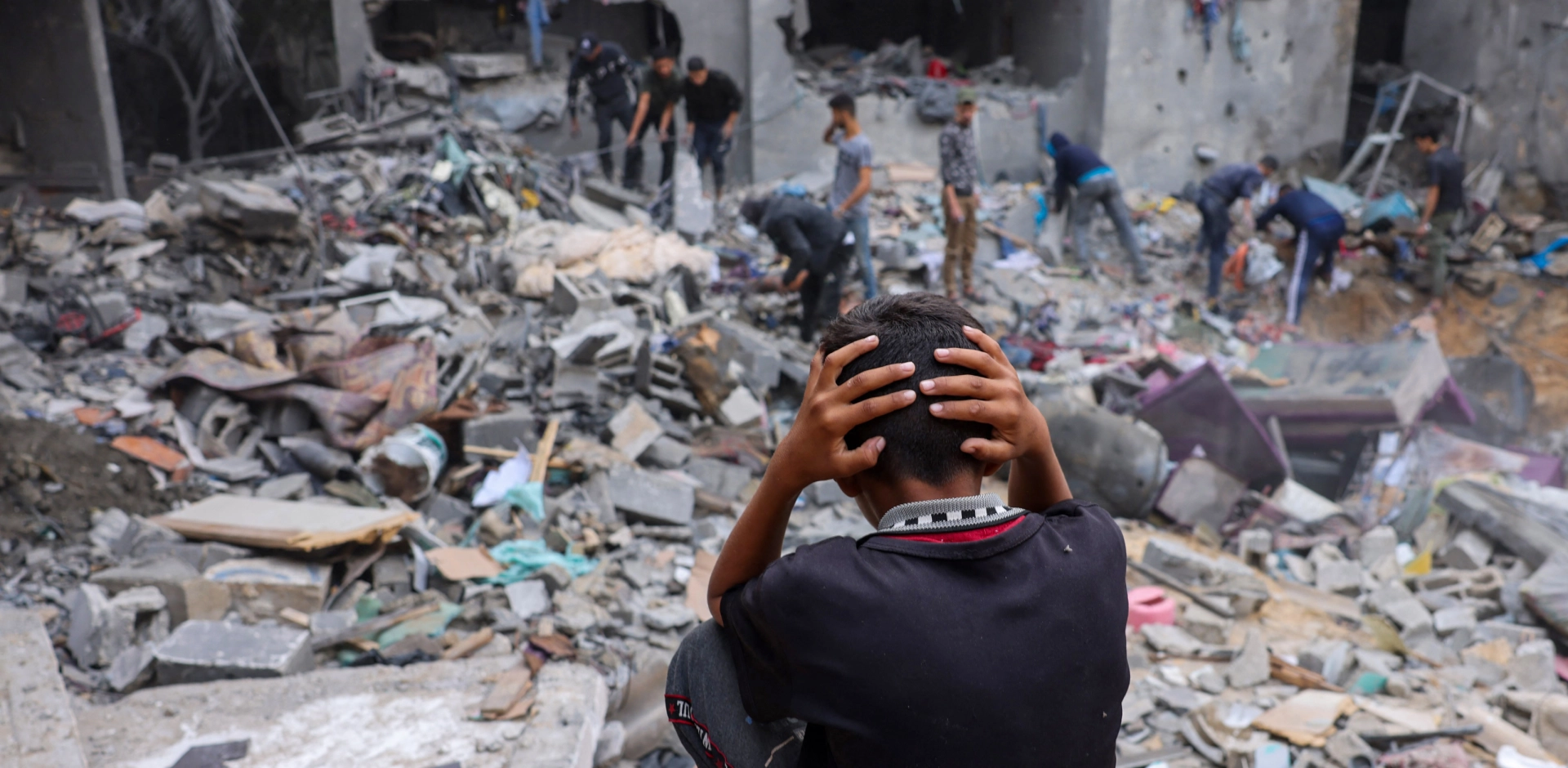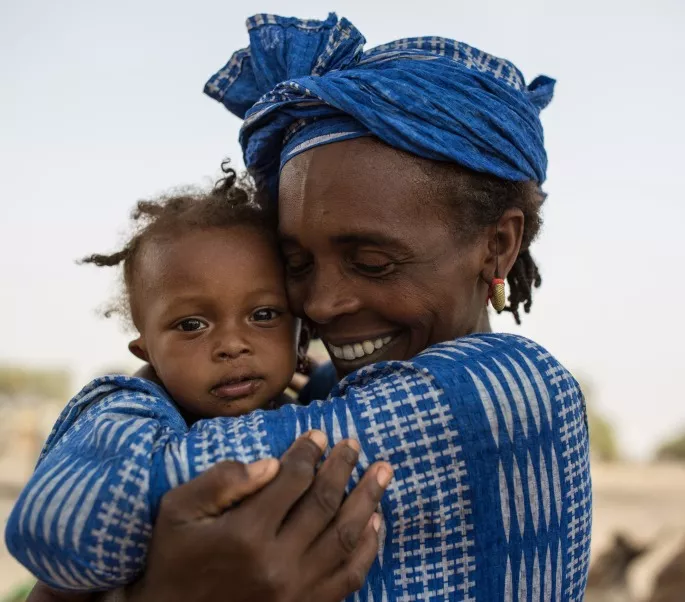As we enter into our 2nd Ramadan during a global pandemic, it’s quite apparent that Muslims in our community are struggling. Many of the things we’re accustomed to during Ramadan are more difficult or not possible at this time: the family gatherings, the community iftars, the large Taraweeh prayers, and the overall strong sense of community and belonging that is typically stronger in Ramadan.
For mothers of young children, they face another unique challenge: Being able to extract as much benefit from Ramadan and having the time and ability to engage in their own personal acts of worship. For mothers of infants and toddlers, they may not be fasting due to breastfeeding. This is my third Ramadan as a mother, and this year has felt particularly difficult as I now have more than one child, my younger one being a newborn. For many women, it’s not simply one Ramadan that’s different. They may start off unable to fast while being pregnant one year, then nursing an infant the second year, and then running around after a toddler the third year. Throw in multiple kids into the mix, a mother is left with very little time for focused spiritual growth and development in Ramadan.
In an effort to benefit myself and my fellow mothers, I’ve shared some suggestions and tips below which will hopefully be a balm to your heart but also provide some practical ideas, particularly when it can be difficult to keep up motivation in Ramadan over multiple years.
1. Perspective
Let’s start with this: It’s all about perspective. It can be disheartening to feel as though your time is not your own and that it is dictated by the essential and emergent needs of our little ones. It’s tough to have a desire to do something like recite Quran or fast, yet physically be unable to due to your hands being occupied or needing to nourish an infant. It’s so important to remind ourselves that we are fulfilling such an integral role by taking care of the physical, emotional, nutritional, and everyday needs of our children. Although inherently many of us know and recognize this, we can be more purposeful in setting and regularly renewing our intention that we are completing an act of worship by raising our children. We can make it our goal to do this in a manner that is pleasing to Allah (swt), that we are trying to raise children who have strong character and a deep love and adherence to the deen.
Allah (swt) knows your intention: Think about and reflect on the following hadith…
Chapter 1 – Hadith 4: Sincerity and Significance of Intentions and all Actions, Apparent and Hidden.
Jabir bin Abdullah Al-Ansari (radhiAllahu anhu) reported:
We accompanied the Prophet (sallaAllahu alayhe wasallam) in an expedition when he said, “There are some men in Al-Madinah who are with you wherever you march and whichever valley you cross. They have not joined you in person because of their illness.” In another version he said: “They share the reward with you.” [Muslim]
It is narrated by Bukhari from Anas bin Malik (radhiAllahu anhu):
We were coming back from the battle of Tabuk with the Prophet (sallaAllahu alayhe wasallam) when he remarked, “There are people whom we left behind in Al-Madinah who accompanied us in spirit in every pass and valley we crossed. They remained behind for a valid excuse.”
Shaykh Ibn Uthaymeen says in his explanation of this hadith: The meaning of this hadith is that if a person intends to do a good deed, but is then unable to complete it due to an obstacle in his way, the reward for what he intended would still be recorded for him.
This is in accordance with the saying of the Prophet (SAW):
‘When a slave falls ill or travels, then he will get reward similar to that he gets for good deeds practiced at home when in good health.” (Bukhari).
So even if you aren’t fasting and praying taraweeh this year, you can get the reward as if you did! And at the end of the day, that’s the point of doing all these things – the “feel good” feeling we get is a bonus, but the pleasure and reward of Allah (swt) is what we care about ultimately and what matters.
Many women can also feel a level of loneliness or isolation in Ramadan during those early years of being a mother. It’s hard not to feel left out if you have to step away from iftar with the family to put a little one to bed, or change a diaper, or to see others head to the masjid while you’re at home. It’s important to note that as with any form of loneliness, we have to always remember that Allah (swt) sees our struggle, and we can turn to Him to find solace at any moment. Secondly, know that you are not alone. There are thousands of Muslim mothers around the globe who are experiencing similar struggles. Sometimes it helps just to know you’re not the only one.
2. Preparing iftar for others
If you’re unable to fast due to pregnancy or breastfeeding, think of the following hadith when you’re preparing iftar for your family or others:
Zayd ibn Khalid reported: The Messenger of Allah, peace and blessings be upon him, said:
مَنْ فَطَّرَ صَائِمًا كَانَ لَهُ مِثْلُ أَجْرِهِ غَيْرَ أَنَّهُ لَا يَنْقُصُ مِنْ أَجْرِ الصَّائِمِ شَيْئًا
Whoever helps break the fast of a fasting person, he will have the same reward as him without decreasing anything from the reward of the fasting person.
Source: Sunan al-Tirmidhī 807, Grade: Sahih
3. Increasing in acts of charity
Narrated Ibn `Abbas: The Prophet (saw) was the most generous of all the people, and he used to become more generous in Ramadan when Gabriel met him. Gabriel used to meet him every night during Ramadan to revise the Qur’an with him. Allah’s Messenger (saw) then used to be more generous than the fast wind.
While we may be unable to engage in ritual acts of worship to the level that we desire, we can focus on areas that we have more control such as increasing in giving sadaqah, no matter how little. Alhamdullilah giving financially does not involve what is often our most limited resource as parents – time!
4. Maximizing nursing and rocking sessions
Many mothers can relate to the experience of spending hours nursing or rocking our babies. During those times, you can set up a station for yourself beforehand with wireless headphones (if possible) and listen to Islamic lecture series during that time or listen to Quran or revise your memorization.
One of my personal favorites is the “Life Haqq with Dr. Syed” podcast on YouTube (link: https://www.youtube.com/c/DrSyed) which features many beneficial series, including an episode specifically about Ramadan (link: https://www.youtube.com/watch?v=hSCJghHwdt0).
5. Focus on Dhikr
While we may not be able to stand for long hours in salah, or pray in congregation without being interrupted several times, we can be intentional in engaging in dhikr throughout the day. There are also apps available that include various adhkar and duah broken into easy to navigate categories. As you put your little one down after a late night nursing session that’s gone into the morning, take a few minutes to complete the morning adhkar before going back to bed.
The following is an example of how powerful dhikr can be:
In the incident when the poor among the Companions (radhiAllahu anhum) said: “O Messenger of Allah, the rich have taken away all the rewards.” Meaning, that the wealthy have preceded them with sadaqah and freeing slaves. So the Prophet (sallaAllahu alayhe wasallam) said: “Shall I not teach you something whereby you will catch up with those who have preceded you and will get ahead of those who follow you, and no one will surpass you unless he does the same as you do?” Then he said: “Say: Subhan Allah, and Allahu Akbar, and praise Him (by saying Al-hamdu lillah) thirty-three times at the end of every Salat.” So they did that, and the wealthy knew of this and did the same. So the poor came to the Prophet (sallaAllahu alayhe wasallam) and said: “Our brothers, the possessors of wealth, having heard what we are doing, have started doing the same.” The Prophet (sallaAllahu alayhe wasallam) replied: “This is Grace of Allah which He gives to whom He wishes.” (Bukhari and Muslim) And Allah is the possessor of great bounty.
——————————————————————————————————————
Remember, my fellow mamas. This is a season. InshaAllah, our little ones will grow and become more independent, and we’ll get much of our time back. And in those moments, while we may long for baby cuddles and baby coos, I hope we also take full advantage and remember the following hadith:
Ibn Abbas (May Allah be pleased with him) reported: Messenger of Allah (ﷺ) said,
“There are two blessings in which many people incur loss. (They are) health and free time (for doing good)”. [Al-Bukhari]
And if you’re in a stage of your life where you have more control over your schedule and time, be sure to remind yourself of the words of our Prophet (saw) above and do what you can to maximize and extract every ounce of benefit from Ramadan. This blessed time comes only once a year, yet it has the ability to transform us for a lifetime no matter what our situation may be.
For an excellent related post on tips for Ramadan while on your period, check out the following NYM iNK Imancipation post: https://www.facebook.com/377027832437977/posts/1989845371156207/?d=n



